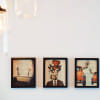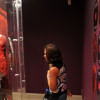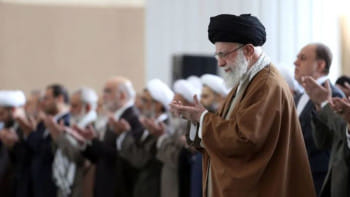The museum with nothing to show, but lots to see

A museum is a place to see things. This is a museum, paradoxically enough, you visit to not see.
My visit to the Dialog Museum in Frankfurt, Germany, a small establishment within a busy metro station, showed me things that we would never see in the light. In the lightless corridors of the museum, I experienced the vulnerabilities of blindness.
The museum's concept is fairly simple – a blind or visually impaired guide leads you through rooms with changing themes, all in the dark. You are put in the shoes of the blind. Absorbed into total darkness and immersed in blindness, you have no choice but to adapt and rely on your other senses.
The guide takes you through a dark corridor showing how to count money, cross the road, take the train, and much more, all without sight. Not seeing for 45 minutes has shown me the struggles of the person clutching onto a white stick, tapping it repeatedly against the asphalt trying to navigate.
The experience humbles you. It reminds you of your blessings of sight and of your obligation to someone who lacks it.
The museum I visited in Frankfurt is an initiative of Dialogue Social Enterprise (DSE). It is a social enterprise with a mission to promote inclusivity. Dialogue in the Dark (DiD) is an exhibition of theirs. DiD raises awareness for blind people by leaving a lasting impression on visitors. It also creates jobs for the visually impaired and the blind.
Bangladesh, according to some sources, accounts for roughly 2.2 percent of global blindness and 2.53 percent of global visual impairment. Needless to say, the visually impaired are neglected in our society, mainly due to a lack of awareness and empathy.
Setting up something like this in Bangladesh can show others what the Dialog Museum has shown me. It can raise awareness for the eight million people in Bangladesh struggling to cross the street. It will, eventually, lead to better accessibility and infrastructure for the visually impaired, and we can be a truly inclusive society.
To voice your support, please visit sites.google.com/view/blindmuseum and simply select "Yes".

 For all latest news, follow The Daily Star's Google News channel.
For all latest news, follow The Daily Star's Google News channel. 








Comments